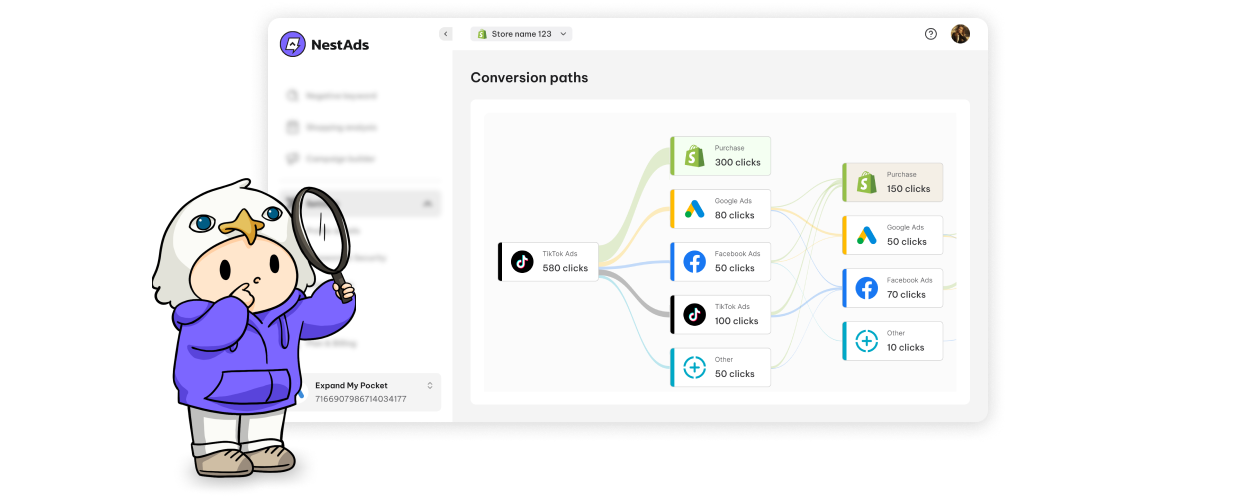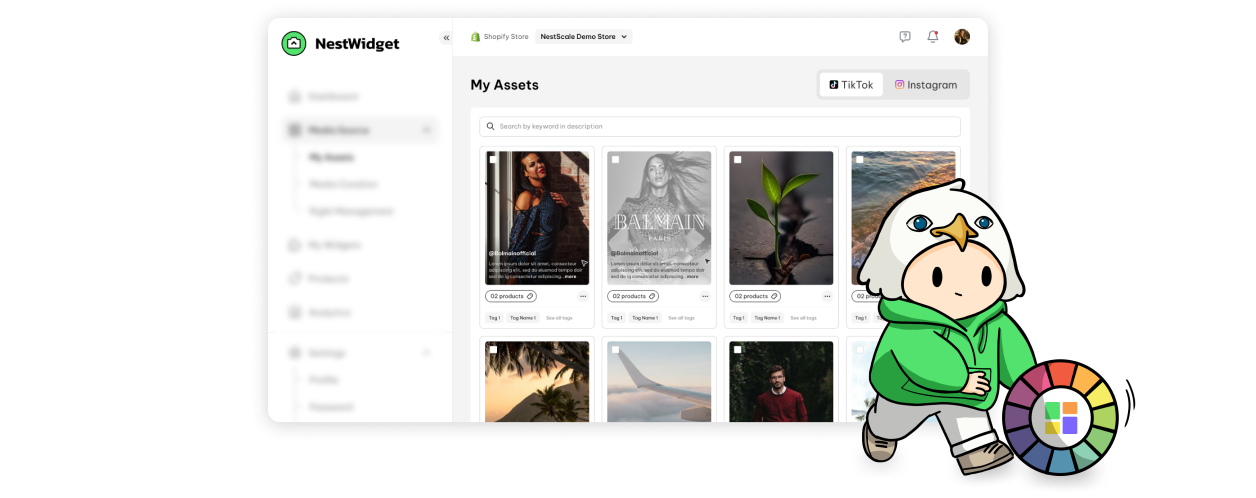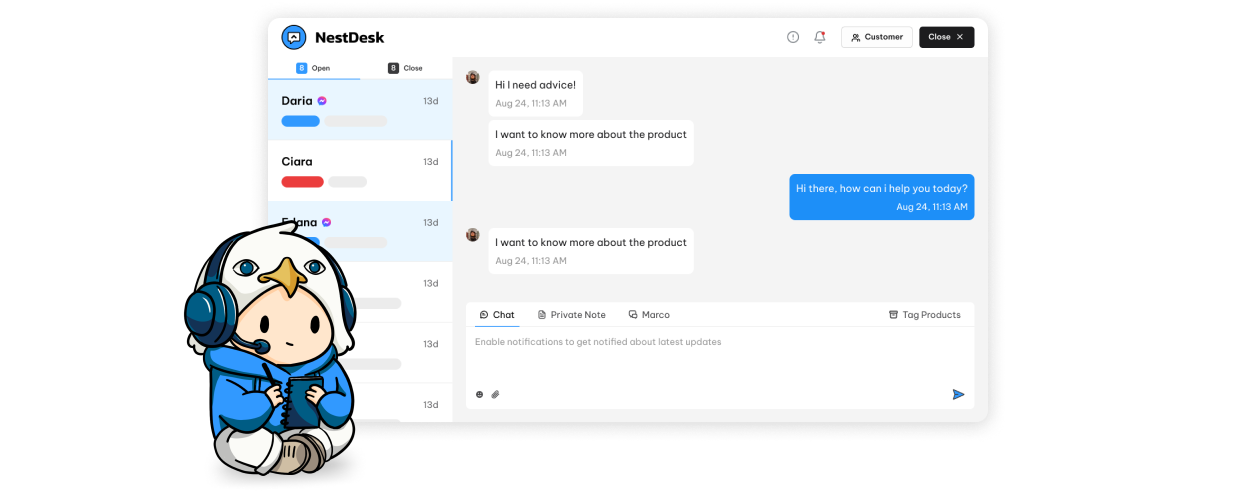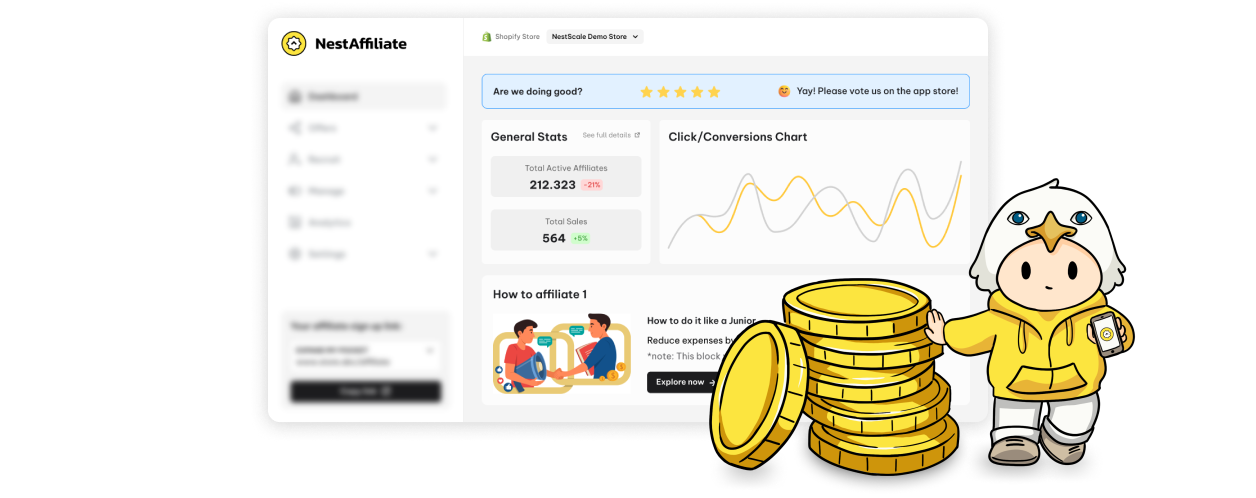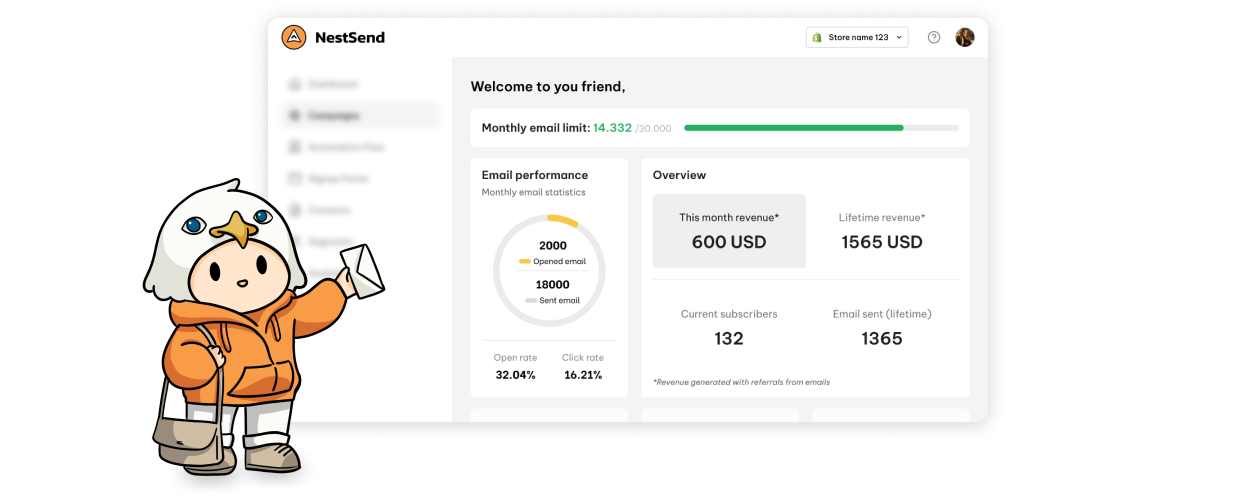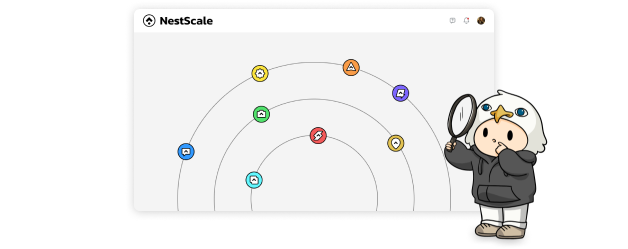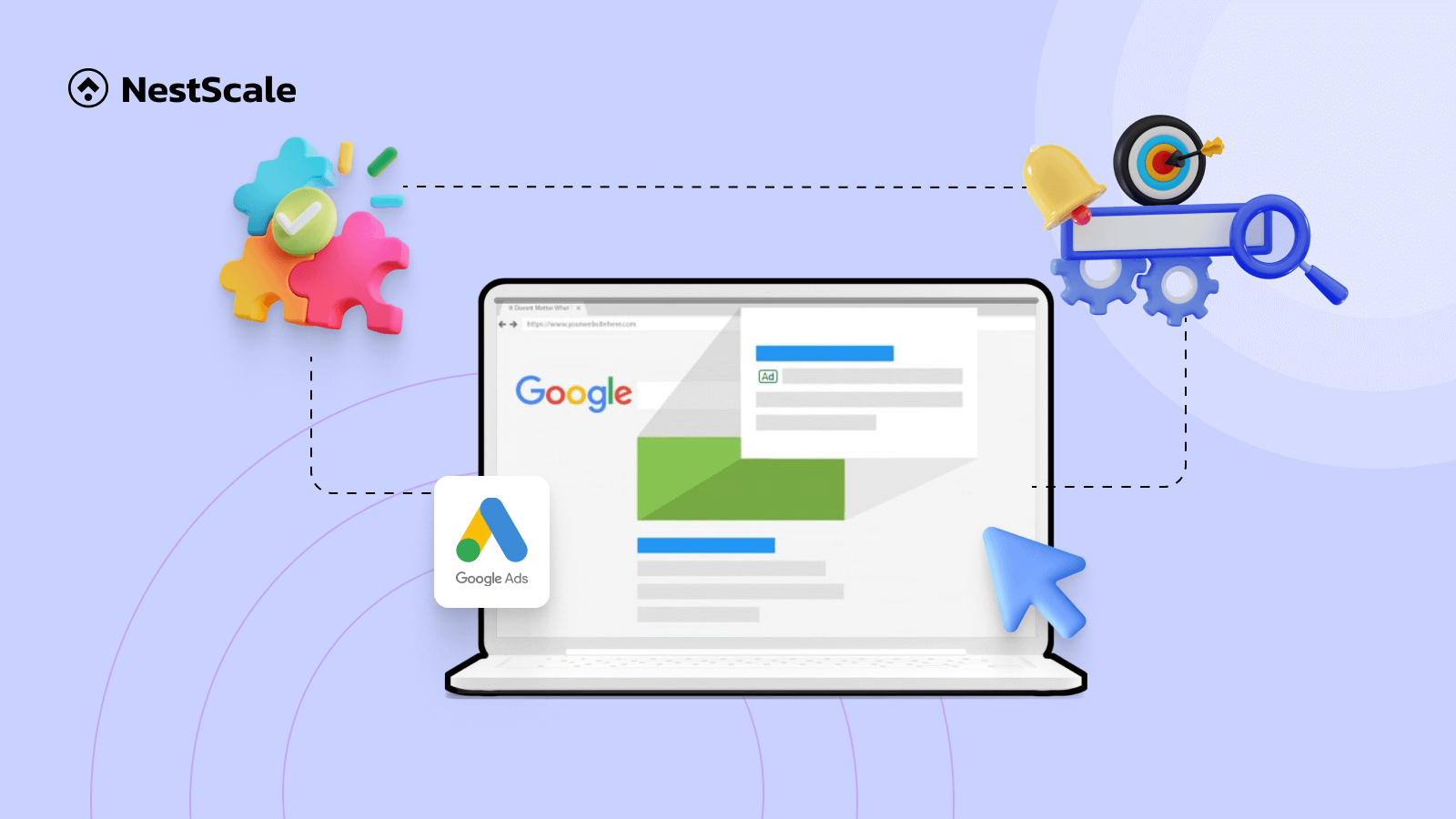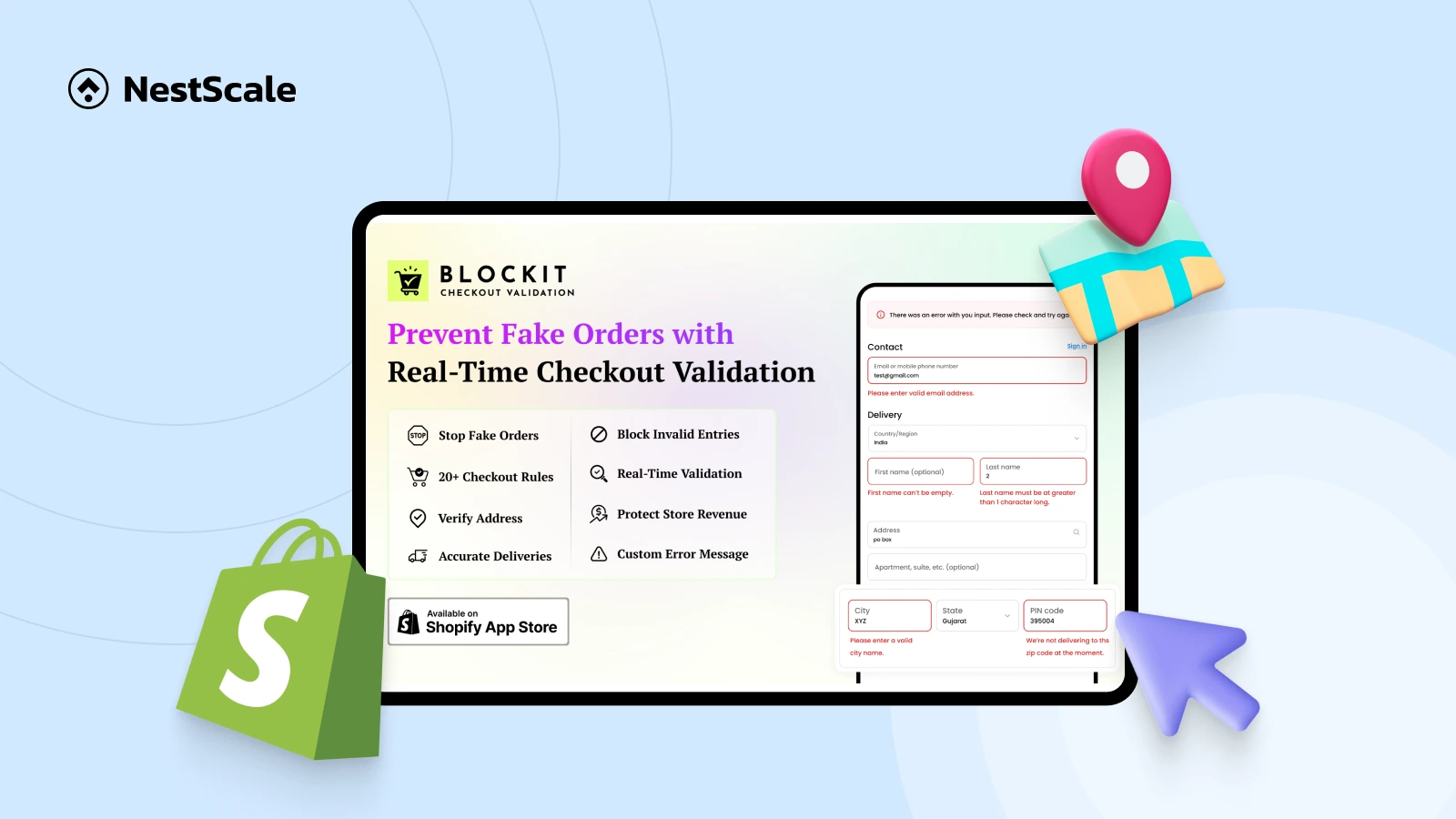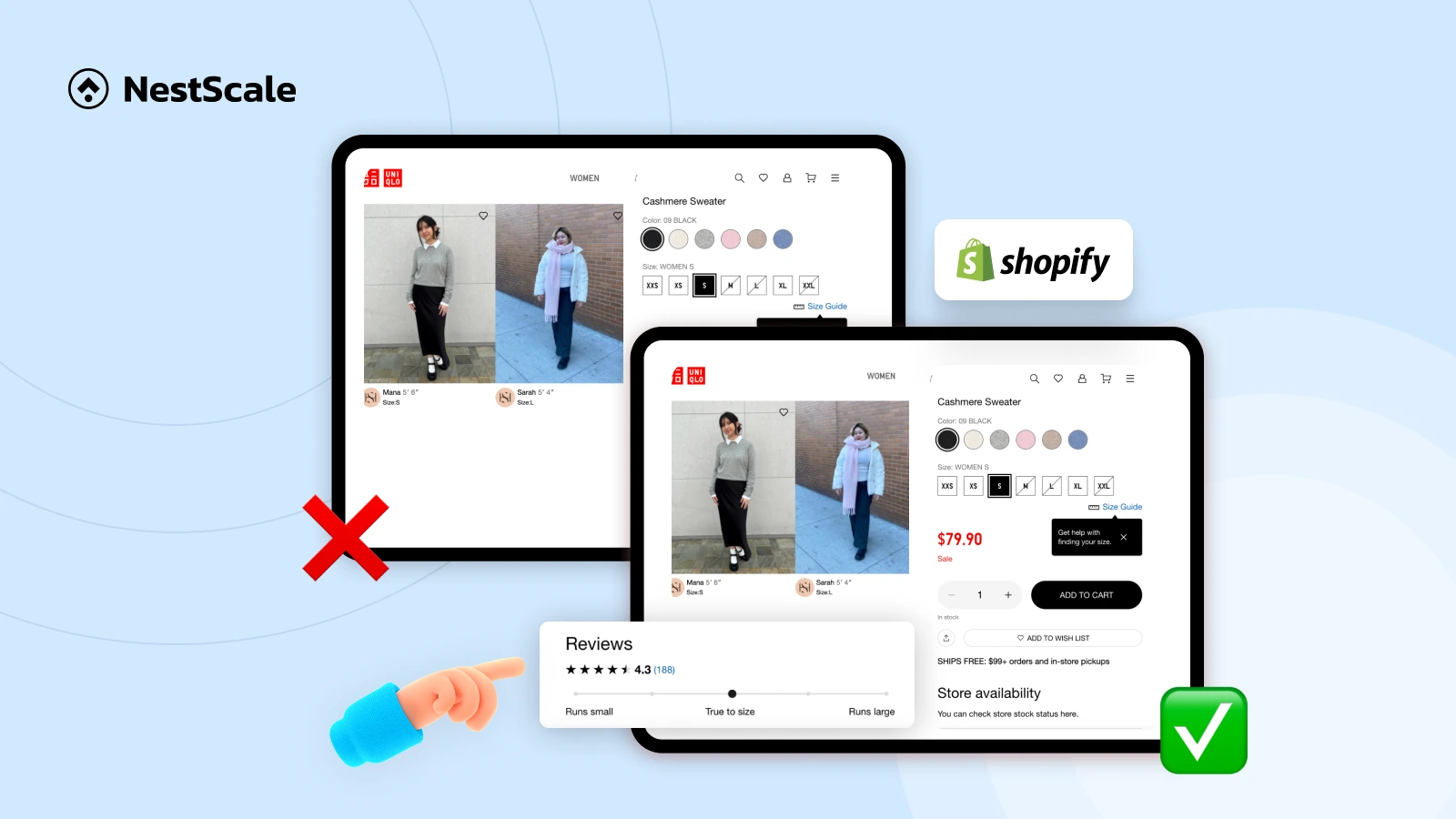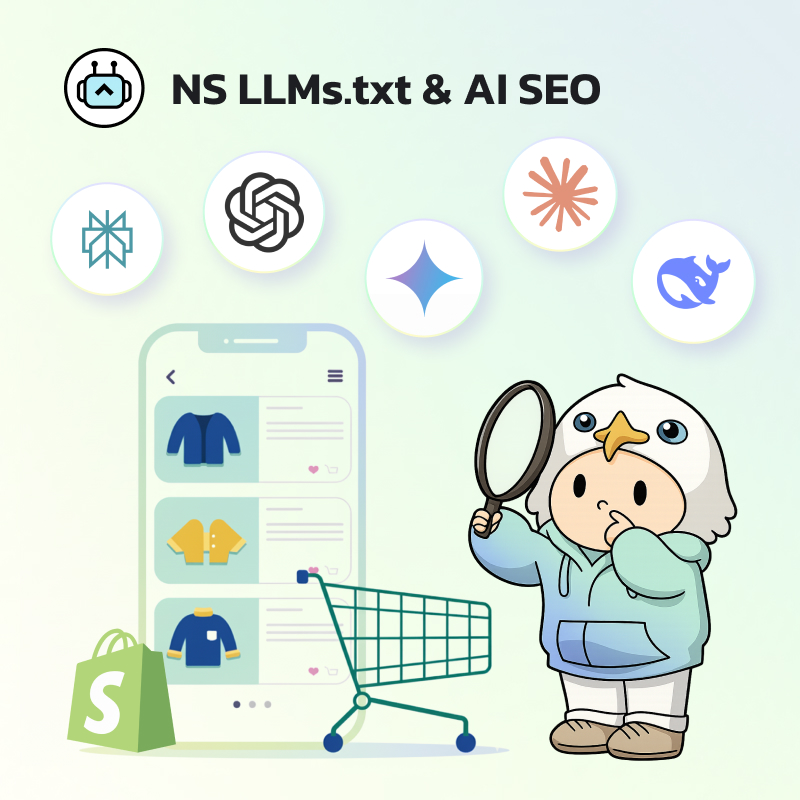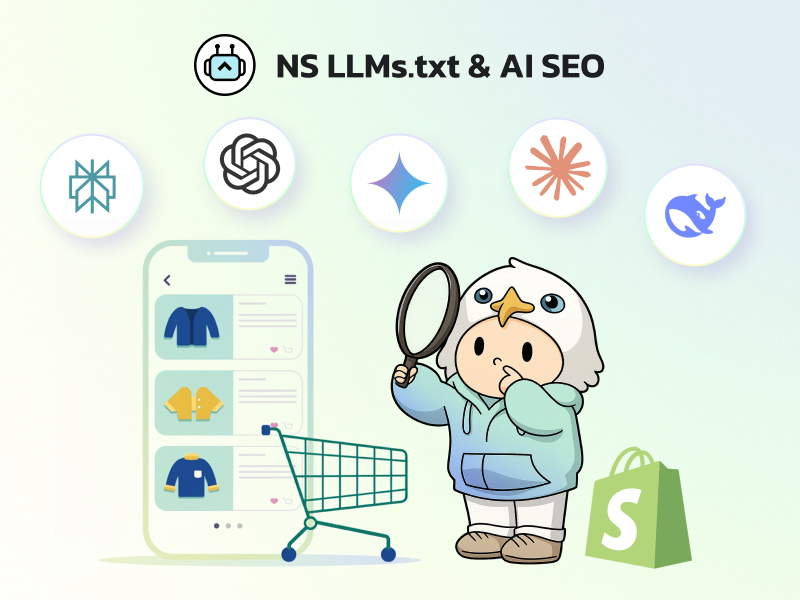Navigating the intricate landscape of Google Ads match types doesn’t have to be perplexing. If the Broad, Phrase, and Exact match leaves you scratching your head, fear not! This blog post is your beacon of clarity, demystifying these match types in straightforward language. Get ready to elevate your online ad campaign as we unveil the secrets behind each type, empowering you to wield them with precision like a seasoned PPC pro. Delve into the subtleties of targeting, unraveling the unique impact each match type has on your ads, and uncovering hidden gems to maximize clicks and conversions.
Are you prepared to dominate the search query universe? Take the plunge and harness the true power of your keywords!
What are the Google Ads match types?
Google Ads keyword match types are parameters set by advertisers that determine the scope of search queries that could trigger their ads. These match types affect the potential reach and relevance of your paid search results. The main types are Broad Match, Phrase Match, and Exact Match.
Let’s dive straight into the specifics of each Google Ads match type without any delays.
Broad Match
Broad Match is a keyword match type in Google Ads that allows your ad to show on searches that include any word in your keyphrase, in any order, or any word related to your keyword. For example, if your keyword is “luxury car”, your ad may appear for searches like “luxury cars”, “fast cars”, or “luxury apartments”.
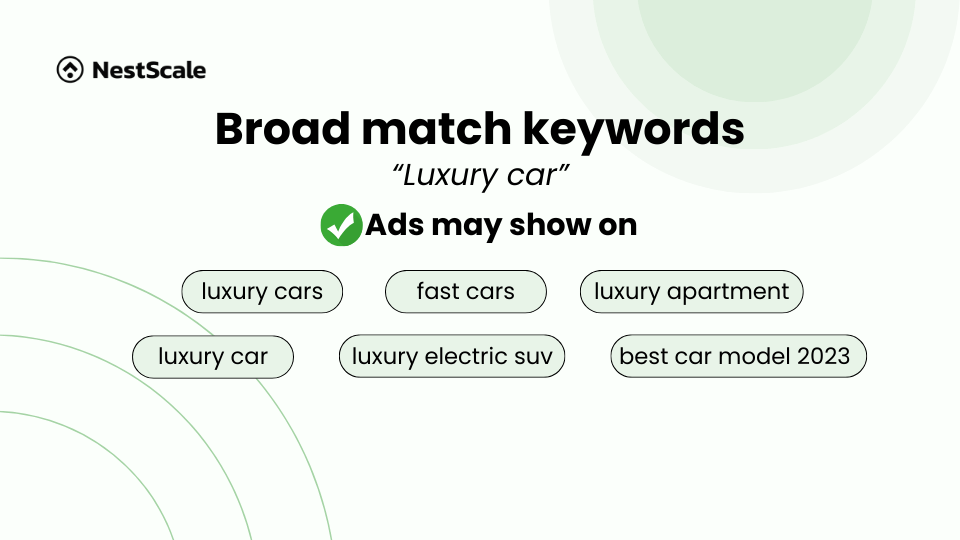
When to use Broad Match:
This match type is the default option in Google Ads and provides the widest reach. It includes several factors such as other keywords in your ad group, user’s previous searches, location, and your landing page content. However, Broad Match requires careful monitoring to avoid irrelevant traffic. You can set up negative keywords to prevent your ad from showing on unrelated searches. It is recommended to use Broad Match in conjunction with Smart Bidding for optimal results.
Phrase Match
Phrase Match Google Ads is a keyword match type that balances reach and relevance. It allows your ad to appear when a user’s search query includes your keywords in the exact order you enter them, with the possibility of other words appearing before or after your keyword phrase.
For instance, if your Phrase Match Google Ads keyword is “interior paint”, your ad could appear for queries such as “buy interior paint” or “paint for interior”, but not for more tangential queries like “lavender paint” or “interior design”.
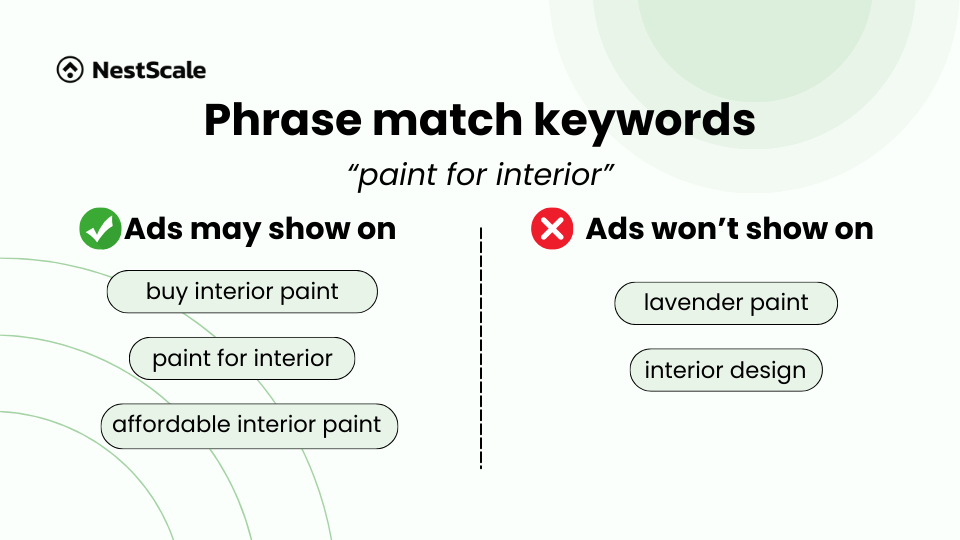
In 2021, Phrase Match was updated to include behaviors of the discontinued Broad Match Modifier (BMM), making its reach more expansive than before. As a result, Phrase Match now covers queries that have the same meaning as your keyword or more specific forms of your keyword.
When to use Phrase Match:
This match type is particularly useful when you want to ensure that queries refer to your specific keyword, making it an excellent choice for brand and competitor campaigns.
Exact Match
Exact Match keywords are the most specific keyword match type in Google Ads. It allows your ad to appear only for searches that are identical or very close to your keyword. This means if your Exact Match keyword is “women’s shoes”, your ad will only show for searches like “women’s shoes” or “shoes for women”, and not for broader or related searches like “shoes for running” or “women’s clothing”.
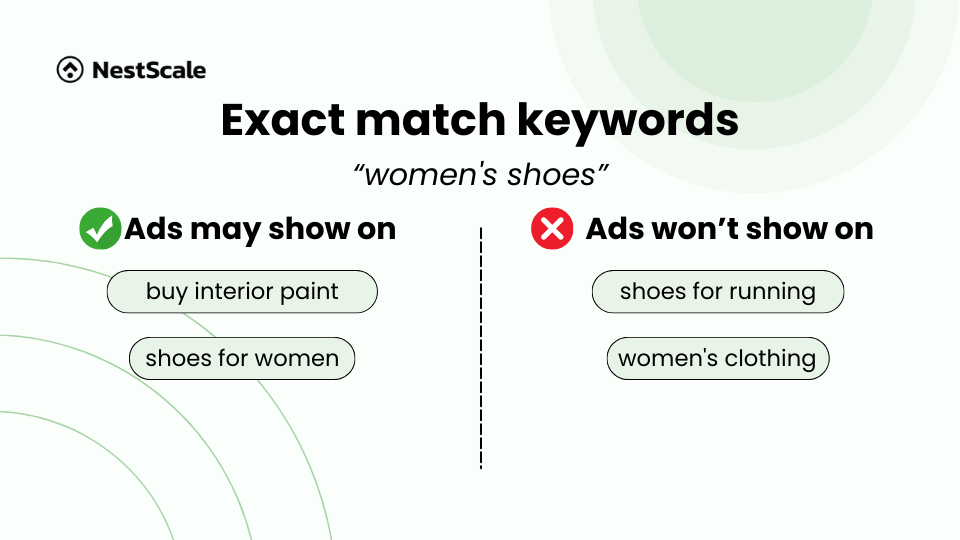
When to use Exact Match:
Google Ads Exact match is highly controlled and provides the most relevant results. That makes it ideal for targeting specific search queries. However, it limits the reach of your ads. Because they will only show exact or very close variations of your keyword. While this may result in fewer impressions, it often leads to a higher click-through rate as the ads are highly relevant to the search query.
It can be particularly useful for campaigns with specific products or services, where you want to target users who are searching for exactly what you’re offering.
What are the differences among these Google Ads match types?
Comprehending the three types of keyword matches in Google Ads – Broad Match, Phrase Match, and Exact Match – is vital for maximizing the success of your Google Ads campaign. These match types allow you to control the breadth or precision of your keywords when matching search queries and displaying ads. Each match type offers varying degrees of flexibility.
Here’s a detailed comparison of the three Google Ads keyword match types:
| Broad Match | Phrase Match | Exact Match | |
| Definition | Allow your ad to appear on searches related to your keyword | Allow your ad to appear on searches that include the exact phrase you specify | Allow your ad to appear on searches that have the same meaning or same intent as your keyword |
| Reach | Reach a wider audience, but searchers may not necessarily be looking for exactly what you’re selling | Reach fewer audiences but traffic is more qualified for what you’re offering | Lowest reach, focusing on incredibly accurate keyword matches |
| Traffic Quality | Sometimes bring in less relevant traffic | Ensure that your ads are shown to users who are more likely to be interested in your offerings | Make sure that your ads are shown to users who are looking for exactly what you’re offering |
| Strategy | Suitable for businesses aiming to increase visibility and attract a large number of users | Better for businesses seeking to target a more specific audience and optimize their ad spend | Ideal for campaigns where precision is more important than reach |
| Example: Farmhouse curtain | country curtains, bed room curtain & drapes, barn door | farmhouse curtains, country style farmhouse curtain, farmhouse curtain ideas | farmhouse curtains, farmhouse style curtain |
How do match types affect your search ad results?
Match types in Google Ads can significantly influence your search ad results. They provide the control mechanism to determine which search queries you’re bidding on. Here are some ways they affect your search ad results:
- Ad Relevance: Match types determine how closely a user’s search query must align with the terms you’ve selected. More precise match types, such as Exact Match, can lead to higher relevance, potentially resulting in higher click-through rates and conversions.
- Reach: The range of matches your ads can reach varies depending on the match type. Broad Match increases visibility by displaying your ads for a wider range of similar searches, but it may also draw less relevant traffic. Phrase Match targets specific phrases or variations, reducing the reach further. Exact Match, providing the most restricted reach, focuses on incredibly accurate keyword matches.
- Cost and Efficiency: The match type you select can impact the efficiency and expense of your campaign. Broad Match may result in more clicks but can also lead to more spending due to less focused traffic. Exact Match, while resulting in fewer clicks, often leads to higher conversion rates, thus optimizing your money more effectively.
- Control and Optimization: Using a combination of match types gives you more control over your ad targeting. You can allocate funding and adjust bids based on the performance of each match type. It will help you optimize the best outcomes.
We can say that our choice of Google Ads keyword match types significantly impacts the quality of traffic, cost efficiency, and the level of control maintained over your ad campaigns. These decisions play a crucial role in influencing the overall success and outcomes of your advertising efforts.
How to target keywords in Google Ads?
Here are several steps you need to follow in order to set up your Google Ads keyword match types accurately.
Step 1: Log in to your Google Ads account > Add a new Search campaign or generate a new Ad Group from an existing campaign.

Step 2: Choose the keywords you want to focus on. It is advisable to use only one keyword match type per Ad Group and avoid targeting the same keyword with different match types.

Step 3: Press the Save And Continue button to set the targeting for the chosen keywords.
Ready to make the most of your Google Ads match types
If you want to maximize the effectiveness of Google Ads match types, it’s crucial to employ strategies such as smart bidding, negative keywords, and understanding the entire customer journey.
Smart Bidding
Smart bidding in Google Ads is one of the types of bidding strategies that can optimize performance based on your goals. Therefore, it’s a perfect combination with broad match types. It delivers transparent performance reports, including bid strategy details and campaign drafts. Regular monitoring of these reports helps troubleshoot issues promptly, ensuring your Smart Bidding strategies align with your business objectives.
Negative Keywords
Negative keywords are vital for refining your Google Ads strategy by excluding ads from specific searches. This is useful for businesses not targeting certain products or services. For example, a hat company not selling baseball hats can add “baseball hats” as a negative keyword. Note that negative keywords differ from positive match types; choose them carefully for relevant Search campaigns.
Understanding the whole customer journey
Finally, understanding the entire customer journey is critical in making the most of Google Ads match types. This involves understanding the stages of the marketing funnel that a user is at, which indicates their intent. By understanding where your potential customers are in their buying journey, you can tailor your ads and keywords to meet their needs at each stage.
In order to gain a deeper understanding of the customer journey, consider using NestAds. Our application provides a unique feature that allows you to visualize the complete customer journey, enabling you to better understand and optimize your Google Ads strategy. Let’s unlock the power of understanding your customer journey with NestAds today!





